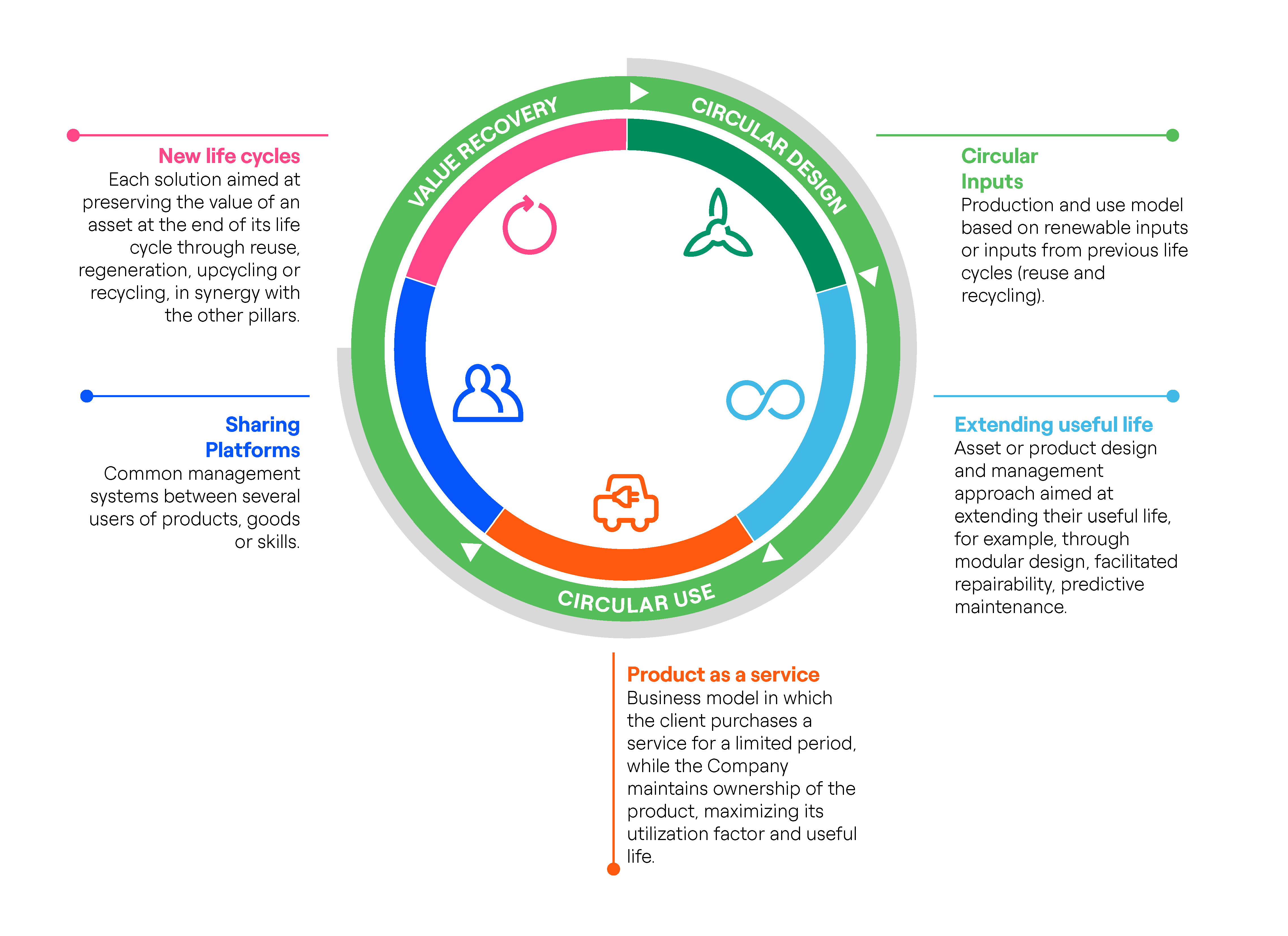The fight against climate change is one of the main challenges of our Company, which is why we have defined specific actions aimed at reducing greenhouse gas (GHG) emissions and improving air quality in the areas where we operate. focusing on the development of our renewable capacity.
Specific CO2 emissions have been reduced to 128 gCO2eq/kWh, 35% less than in 2017, confirming the progress made towards our direct emissions reduction targets of <105 gCO2eq/kWh by 2026.
Emissions for the year 2023 were reduced by 35% compared to the year 2022, driven by the greater generation of clean energy. Regarding the specific emissions of sulfur dioxide (SO2) they were 0.03 g/kWheq, while the specific emissions of nitrogen oxide (NOx) were 0.073 g/ kWheq and particulate matter emissions were 0.005 g/kWheq.
